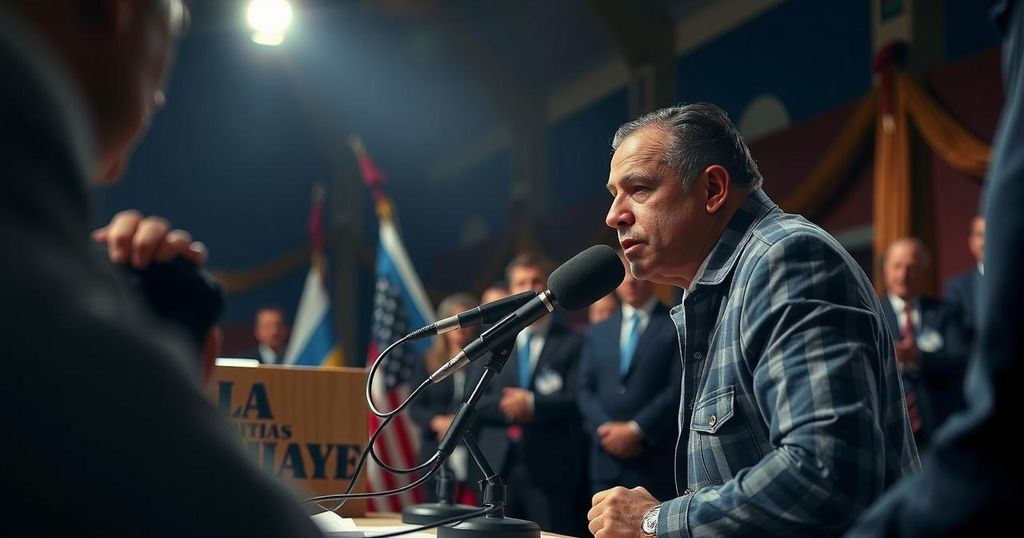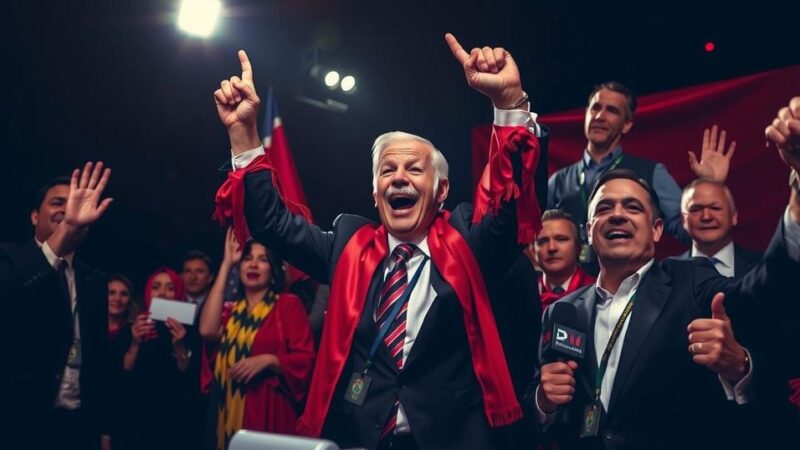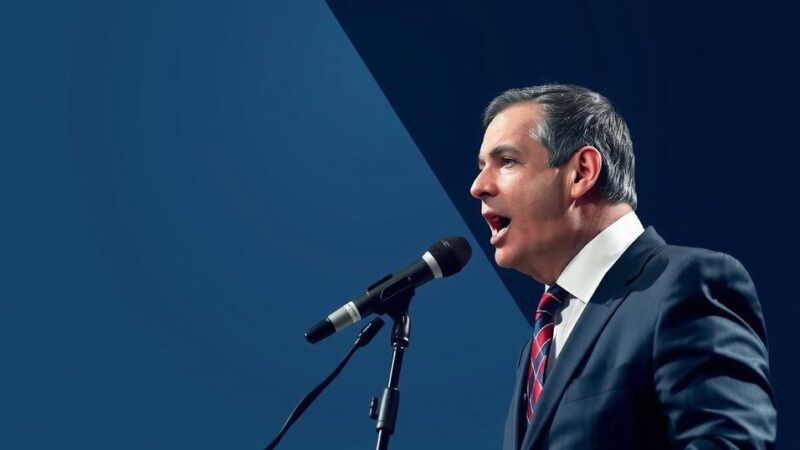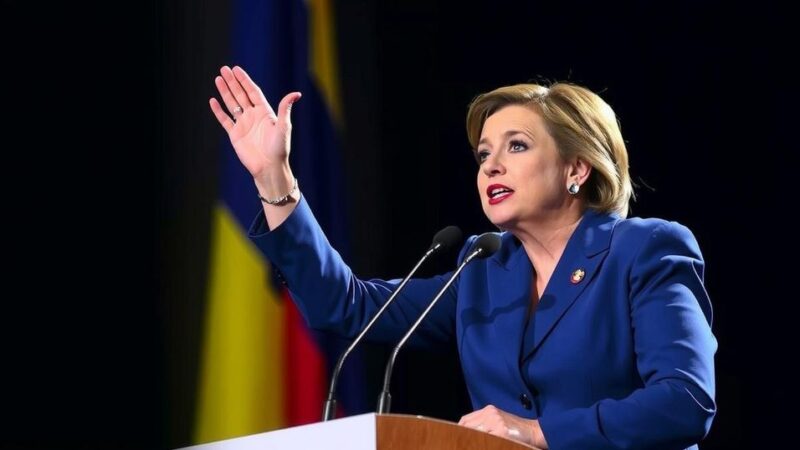The presidential runoff in Uruguay features a close contest between Álvaro Delgado of the National Party and Yamandú Orsi of the Broad Front. After the first round wherein neither candidate achieved a majority, both leaders face voter apathy despite their differing approaches to key issues such as crime and economic stability.
The recent presidential runoff in Uruguay has become a fiercely contested battle between Álvaro Delgado of the National Party and Yamandú Orsi of the Broad Front. Following a previous election where neither candidate secured a majority, this final round pits the conservative incumbent against the leftist coalition that previously governed the nation for 15 years. While Delgado advocates for a continuation of current policies, Orsi seeks to address urgent issues, including rising crime rates, through a community-focused approach.
In the initial round of voting, Orsi’s Broad Front garnered 44% of the votes, while Delgado’s National Party attained 27%. Additional support from other conservative parties provided Delgado with an edge going into the runoff. Analysts highlight the sense of indifference among voters, suggesting that both candidates have failed to energize the political landscape, which is primarily concerned with social issues and income inequality.
Both candidates face a backdrop marked by significant crime concerns, prompting Delgado to emphasize stringent crime policies and propose a new maximum-security prison. Conversely, Orsi’s strategy pivots towards enhancing community safety, reflecting a broader commitment to negotiation and dialogue.
Álvaro Delgado, an experienced politician and veterinarian, aligns his campaign with the successes of the current administration led by President Luis Lacalle Pou, who enjoys substantial popularity amidst a stable economy. Orsi, seen as a successor to the revered former president José Mujica, also aims to implement progressive reforms without drastic changes, championing tax incentives and social security improvements.
In light of the political climate, both candidates expressed intentions to ensure a smooth transition of power should they win, emphasizing unity and cooperation. This sentiment encapsulates the essence of Uruguay’s democratic principles, showcasing a willingness from both leaders to engage in constructive governance regardless of the election outcome.
Uruguay’s political landscape, characterized by a blend of conservative and leftist ideologies, has traditionally embraced a democratic discourse. The national elections, pivotal to its governance, have evolved, reflecting a population that is increasingly concerned with pressing social issues like crime and income inequality. This current election cycle introduces a unique dynamic, revealing a lack of fervent anti-establishment sentiment seen in other regions, posing a challenge for both candidates to galvanize voter support. The history of progressive policies implemented by the Broad Front sets the stage for a competitive runoff, contrasting with the incumbent party’s conservative stewardship.
The runoff election in Uruguay illustrates the complexities of democratic engagement amid pressing social challenges. With both candidates vying for the presidency, their contrasting approaches to governance reflect broader concerns in the electorate. In a nation that values negotiation and consensus, the outcome will likely dictate the future course of social and economic policies, continuing the legacy of collaboration that is characteristic of Uruguayan politics.
Original Source: www.cnn.com






